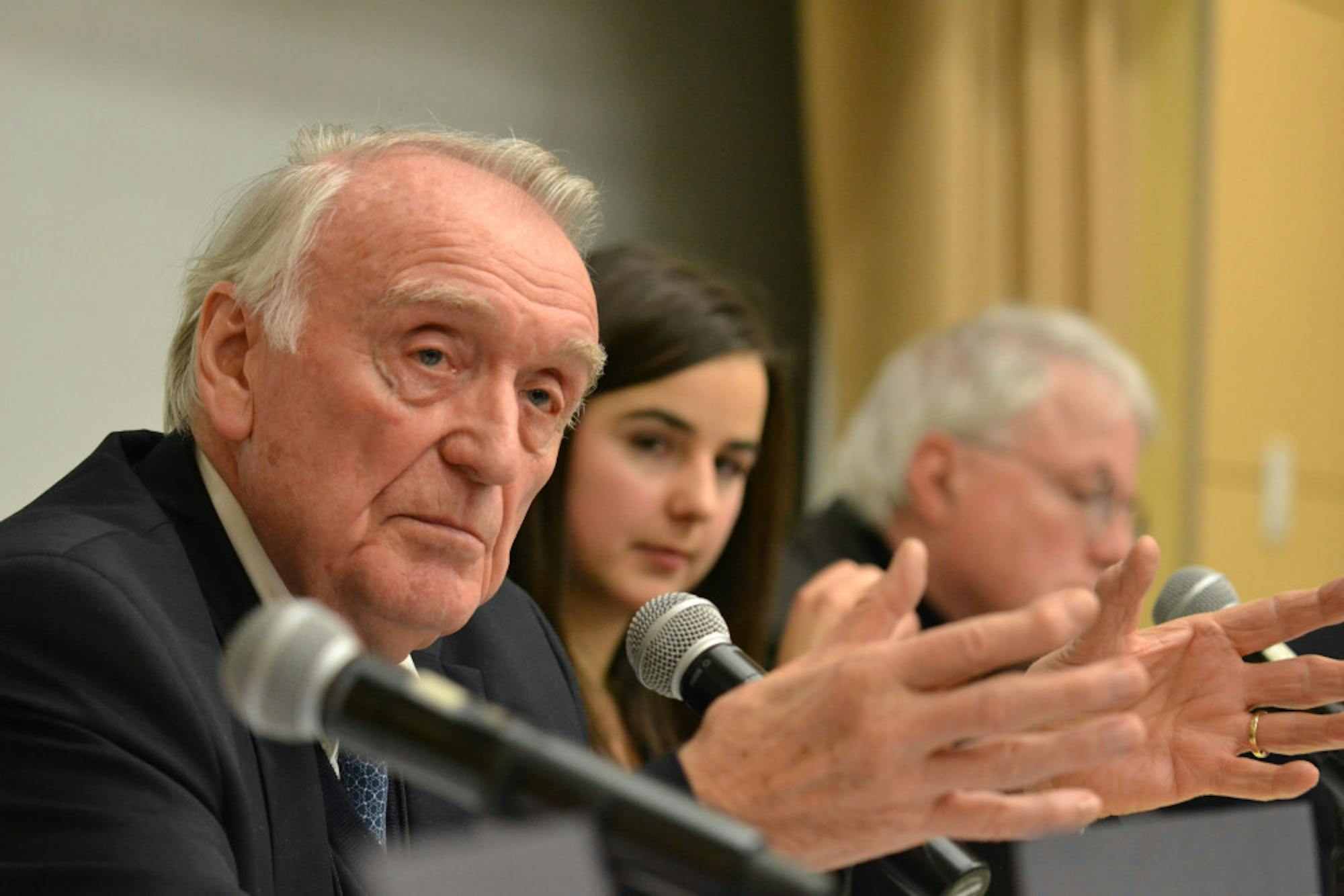The Institute for Global Leadership (IGL) has received a $100,000 grant titled “$100K for 100” from the Cummings Foundation, one of the largest foundations in New England, according to the IGL September newsletter.
The grant will fund an IGL project titled “Human Rights, Human Security and Preparing the Next Generation of U.S. and Global Policy Leaders” and will be dispersed over five years and will also fund other IGL programs and initiatives, according to the newsletter.
Abi Williams, director of the IGL, said that the grant will be given in the form of five installments of $20,000 each year. He said that the grant is a substantive addition to IGL’s budget. In the short term, the money will be used to fund programs like Education for Public Inquiry and International Citizenship (EPIIC), a course Tufts students can take to learn about global leadership, and Inquiry, a Fletcher-sponsored program for high school students, according to Williams.
Williams also explained that part of the grant will be used to bring speakers who have witnessed genocide to the EPIIC conference next spring, which will focus on preventing future genocide and mass atrocity.
In addition to EPIIC, the grant will also be used to fund a high school global issues program called Inquiry, Williams said. Heather Barry, associate director of the IGL, is responsible for organizing Inquiry. She told The Daily that Inquiry is a program that brings high school students to Tufts for a global issue simulation in the spring as well as organizing a trip to other regions of the US or overseas.
This is the 28th year of the Inquiry program; it started in Boston, and later expanded to other cities, Barry said. She believes that the grant from the Cummings Foundation will enable the program to reach out to more schools and provide subsidies to schools that previously had to raise funds to add Inquiry. IGL can also provide more financial support to students who attend this year's trip to Rwanda, Barry adds.
Williams described the grant application process as a “successful team effort,” in which staff from IGL collaborated and came up with the proposal together. He added that the Provost’s Office was also involved and was “very supportive” of their ideas. IGL worked closely with Hillel, the Fletcher School of Law and Diplomacy and as the International Relations Department during this process, Williams said.
The IGL has a five-person team that meets up regularly and decides on the usage of any grant, according to Williams, and the day-to-day management of the grant belongs to the Central Grant Office at Tufts.
This is the first time IGL has received a grant from the Cummings Foundation, according to Williams. However, on the university level, this is one of the many grants that comes from the Cummings Foundation.
Joyce Vyriotes, deputy director of the Cummings Foundation, wrote to the Daily in an email that the principle philanthropic commitment that the foundation has at Tufts is to the Cummings School of Veterinary Medicine, which has received more than $70 million in funding from the foundation.
Williams pointed to “ongoing conflict in Syria and Myanmar genocide and mass atrocity” as reasons that propelled the institute to choose its current grant proposal. He believes that the proposal of the grant also suits the priorities of the Cummings Foundation well.
Vyriotes declined to comment on the foundation's decision to fund IGL. She explained that the grant decision process was competitive and added that the winners were selected by a group of community volunteers who evaluated the proposals.
The grant-selection process took about nine months, with proposals making their way through three different volunteer committees that each narrowed the list before they ultimately decided on the grant winner, Vyriotes explained.
“The Cummings Foundation is delighted to support IGL’s innovative programs to help students connect theoretical learning with valuable first-hand experiences,” Vyriotes said. “It is one of many Tufts programs that train students to think critically and demonstrate leadership related to current global issues.”
IGL receives 5-year $100,000 grant from Cummings Foundation

Karl Kaiser speaks on 'The Future of Europe' panel at the Institute for Global Leadership's 31st annual EPIIC International Symposium on 'Europe in Turmoil' on Friday, Feb. 19, 2016.





